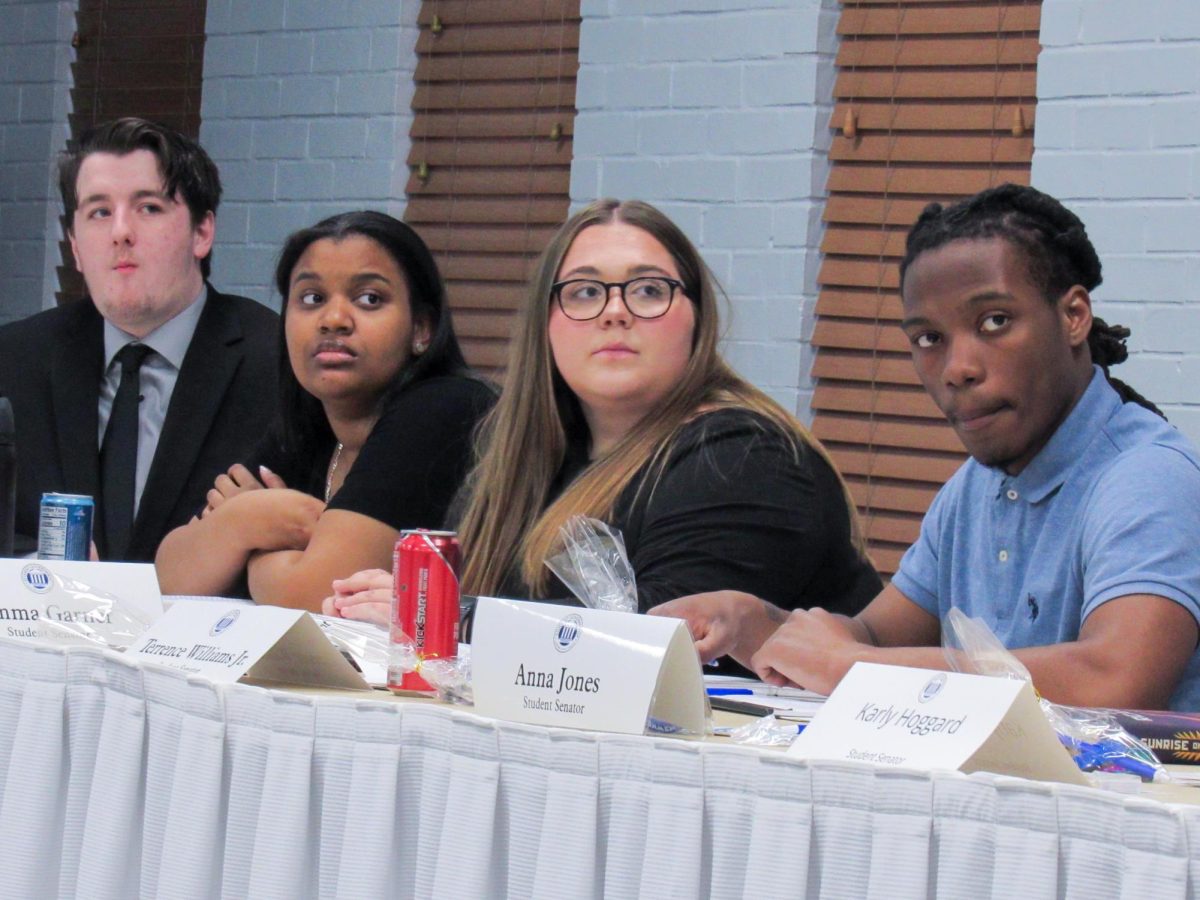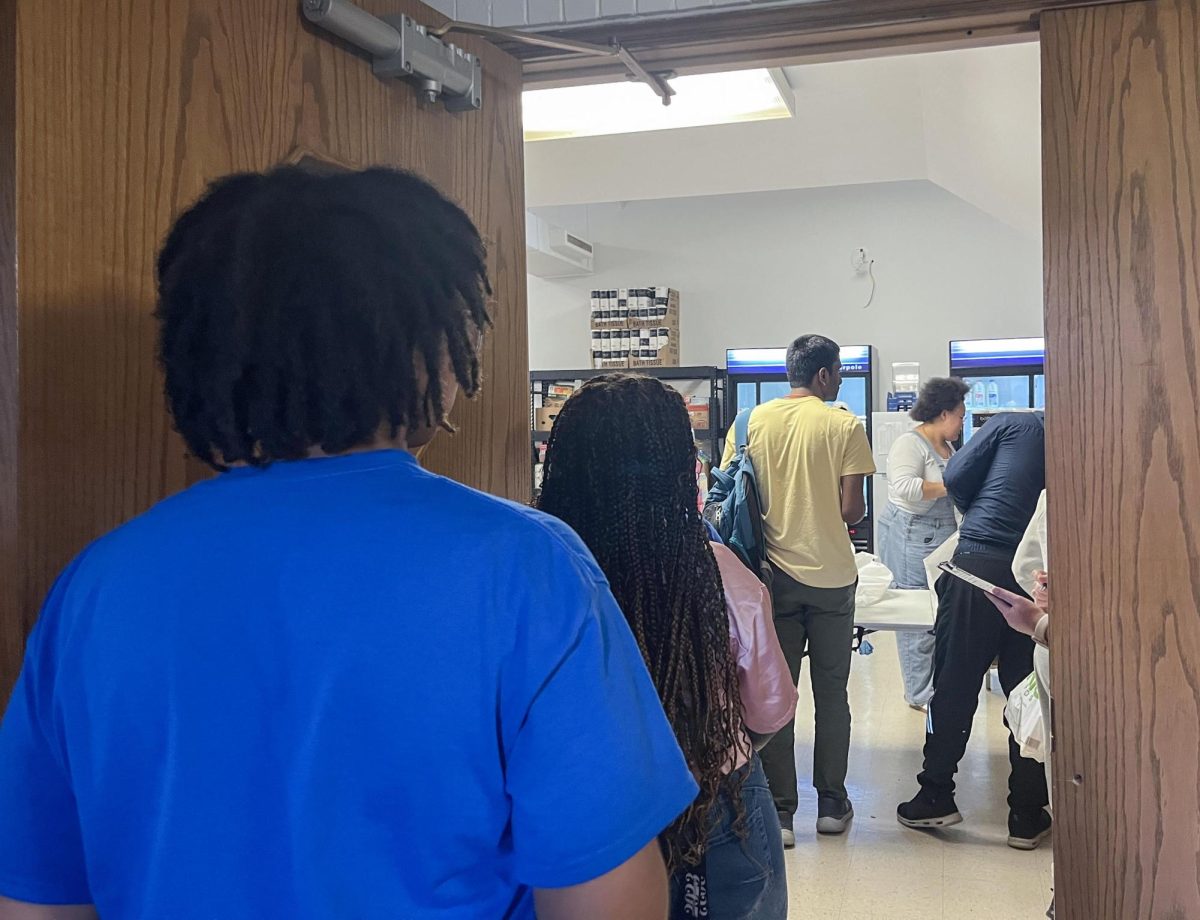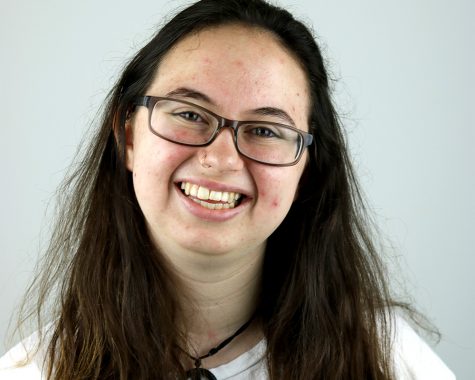Faculty Senate writes resolution in response to concerns about new college
May 4, 2018
The Faculty Senate wrote a resolution recommending an internal search for an interim dean of the upcoming College of Liberal Arts and Sciences at its last meeting of the year.
This interim position would be before the search for a permanent dean commences in two years.
The resolution will be voted on online next week.
During the meeting, Faculty Senate members asked Provost Jay Gatrell about his college restructuring plan before summer, and the implementation of the proposed changes, begins.
Philosophy professor Grant Sterling, incoming chair of Faculty Senate for next year, said he still has problems with the proposed combination of the current College of Arts and Humanities with the current College of Sciences.
“I am uncomfortable with the size of the College of Liberal Arts and Sciences because I think it would be difficult for any dean to really have a strong familiarity with the curriculum needs of a set of programs that are both numerous and diverse,” Sterling said. “I think familiarity with curricular needs of departments is crucial for making staffing decisions and various other decisions.”
Economics professor Teshome Abebe echoed Sterling’s concern with the size of the proposed college.
“The new mega-college that this is going to create is going to be relatively too big for (Eastern’s) size and for the other colleges; I think it would create a situation of haves and have-nots,” Abebe said. “I think we’re going to diminish (current, weaker) programs. I think the success of this new thing we’re going to create is going to be at the expense of what we have now.”
Gatrell said he understands these concerns, yet he is committed to providing resources for all programs, no matter the college, or program, size.
“I do believe over the years what seemed like rational budgeting, which was equality, resulted in inequality in the liberal arts and sciences,” Gatrell said. “What I earnestly am committed to, I mean, it’s my background, it’s my values, is to create a framework where we can celebrate those programs — arts, humanities, social sciences and traditional sciences — and resource them more effectively.”
Joseph Williams, a psychology professor, said he is nervous about his college’s transition.
“I am in the College of Sciences, and I feel like we’re being swallowed up. I don’t believe either current dean we have in (the College of Arts and Humanities and the College of Sciences) has the ability to understand the needs of the respective other units,” Williams said. “Whoever is selected is going to come from one of those (colleges), (and) it’s hard to train someone not to do what they’ve done their whole life, so their focus is going to be ‘treat my people first’, perhaps, whether you want that or not, and allocate to them, short-falling other departments that are now in this conglomerate. Whoever is chosen for this interim period of time is going to set the culture of what will happen down the road.”
To remedy this problem, institutional repository librarian Todd Bruns suggested the provost lead an internal search to find the interim dean for this college before the search for the permanent dean begins in two years.
Biological sciences professor Billy Hung said the need to change outweighs the worries connected to this plan.
“For looking at the situation, do we stay the same or do we change, I think I vote very strongly that we need to change something, and under that, if we want to change to make our school stronger (and) better, than we need a plan,” Hung said. “Amongst all the plans we came up with around campus, I don’t think there’s one plan that does not have severe considerations and worries attached to it.”
Brooke Schwartz can be reached at 581-2851 or at bsschwartz@eiu.edu.









![[Thumbnail Edition] Senior Foward Macy McGlone, getsw the ball and gets the point during the first half of the game aginst Western Illinois University,, Eastern Illinois University Lost to Western Illinois University Thursday March 6 20205, 78-75 EIU lost making it the end of their season](https://www.dailyeasternnews.com/wp-content/uploads/2025/03/WBB_OVC_03_O-1-e1743361637111-1200x614.jpg)
![[Thumbnail Edition] Junior right-handed Pitcher Lukas Touma catches at the game against Bradley University Tuesday](https://www.dailyeasternnews.com/wp-content/uploads/2025/03/MBSN_14_O-e1743293284377-1200x670.jpg)

![[Thumbnail Edition] Eastern Illinois University baseball senior utility player Tyler Castro fields a ground ball during the team's first intrasquad scrimmage of the season on Jan. 31.](https://www.dailyeasternnews.com/wp-content/uploads/2025/03/BB_01_O-e1742874760130-1-e1742907504722-1200x911.jpg)






































![The Weeklings lead guitarist John Merjave [Left] and guitarist Bob Burger [Right] perform "I Am the Walrus" at The Weeklings Beatles Bash concert in the Dvorak Concert Hall on Saturday.](https://www.dailyeasternnews.com/wp-content/uploads/2025/03/WL_01_O-1200x900.jpg)
![The team listens as its captain Patience Cox [Number 25] lectures to them about what's appropriate to talk about through practice during "The Wolves" on Thursday, March 6, in the Black Box Theatre in the Doudna Fine Arts Center in Charleston, Ill.](https://www.dailyeasternnews.com/wp-content/uploads/2025/03/WolvesPre-12-1200x800.jpg)



















